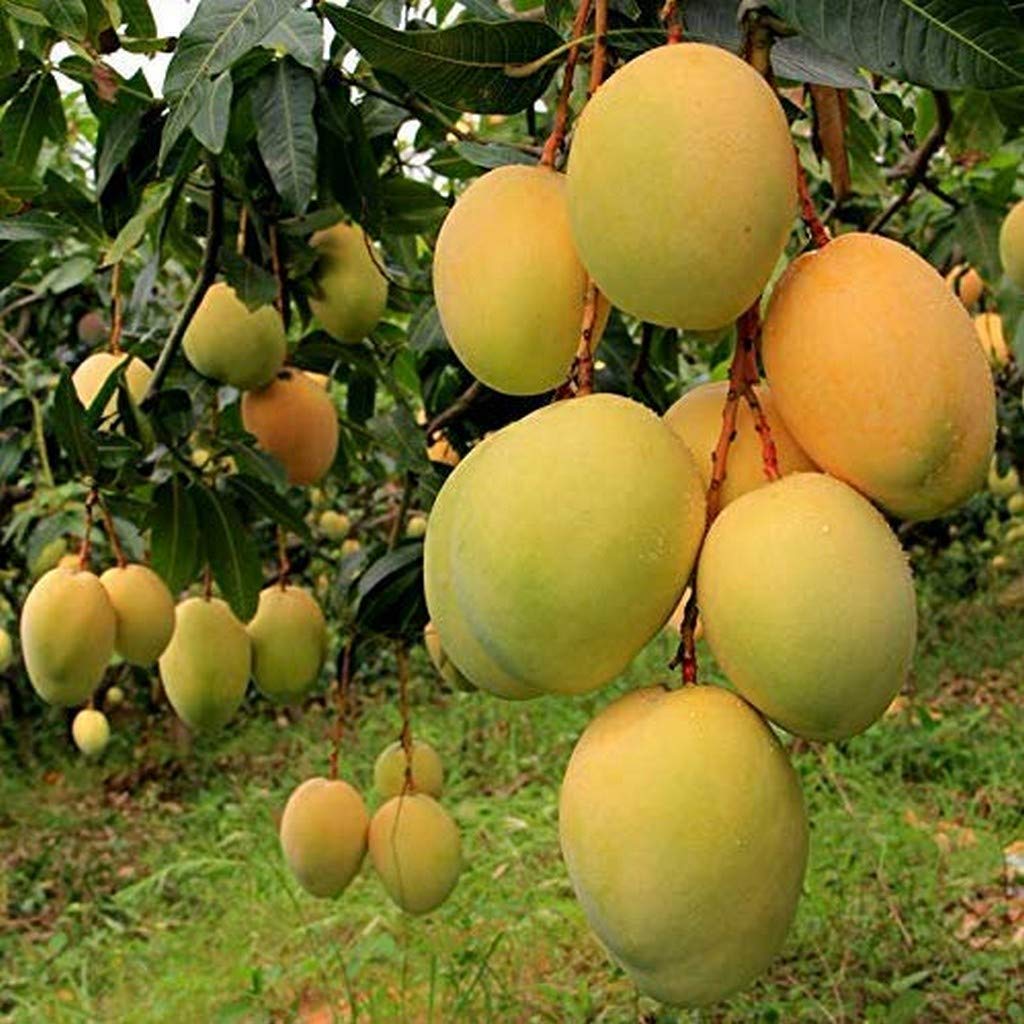Love it? Add to your wishlist
Your favorites, all in one place. Shop quickly and easily with the wishlist feature!
[message]
[title]
[message]


Veliyath Gardens
Couldn't load pickup availability
The Alphonso Mango, often referred to as the "King of Mangoes," is celebrated for its unparalleled taste, rich aroma, and velvety texture. Originating from India, it has become a globally sought-after delicacy, known for its superior quality and unique characteristics. This fruit is more than just a culinary delight; it is a treasure trove of health benefits, cultural significance, and ecological value. Let’s explore the myriad facets of this exceptional mango.
The Alphonso Mango, also known as "Hapus" in Western India, hails from the coastal regions of Maharashtra, particularly Ratnagiri and Devgad. It is prized for its golden-yellow skin with a blush of red and its creamy, non-fibrous pulp that melts in your mouth. Weighing between 150 to 300 grams, this mango exudes a sweet, floral aroma that is instantly recognizable.
This seasonal fruit, available from mid-April to June, is renowned for its export quality and is often considered a symbol of luxury. Its meticulous cultivation and unique flavor profile make it one of the most expensive mango varieties globally.
The Alphonso Mango is not only delicious but also highly nutritious. Packed with essential vitamins, minerals, and antioxidants, it supports overall health and well-being.
The Alphonso Mango is known for its perfect balance of sweetness and mild acidity. Its creamy texture, non-fibrous pulp, and intense fragrance create an unparalleled taste experience. The flavor is rich, tropical, and buttery, making it the most sought-after mango for gourmet applications.
To enjoy the Alphonso Mango beyond its short season, effective preservation techniques are essential:
The Alphonso Mango holds a revered place in Indian culture. It is often associated with festivals like Gudi Padwa and Akshaya Tritiya, where it is offered to deities and consumed as a sacred fruit. The fruit also features prominently in Indian literature and art, symbolizing fertility, prosperity, and sweetness.
Farmers in the coastal regions of Maharashtra and Gujarat have been cultivating this mango for centuries, passing down techniques to ensure its premium quality. Exported to countries like the UK, US, and Middle East, Alphonso Mangoes are ambassadors of India’s agricultural heritage.
Alphonso Mango trees contribute significantly to the environment:
The Alphonso Mango (Mangifera Alphonso) is more than a fruit—it’s an experience. From its luxurious taste to its myriad health benefits, it truly lives up to its title as the "King of Mangoes." Adding this mango to your life means savoring a slice of India’s rich cultural and natural heritage. Whether you cultivate it in your garden or relish its exquisite flavor, the Alphonso Mango promises to delight your senses and enrich your well-being.
Climate: Thrives in warm, tropical climates with consistent sunlight.
Soil: Prefers well-drained, slightly acidic to neutral soils enriched with organic matter.
Water: Requires regular watering during the growing phase, but mature trees are drought-tolerant.
Contains potassium, magnesium, and calcium for bone and heart health.
Provides trace minerals like copper and zinc for metabolic functions.
The Alphonso Mango, often referred to as the "King of Mangoes," is celebrated for its unparalleled taste, rich aroma, and velvety texture. Originating from India, it has become a globally sought-after delicacy, known for its superior quality and unique characteristics.



